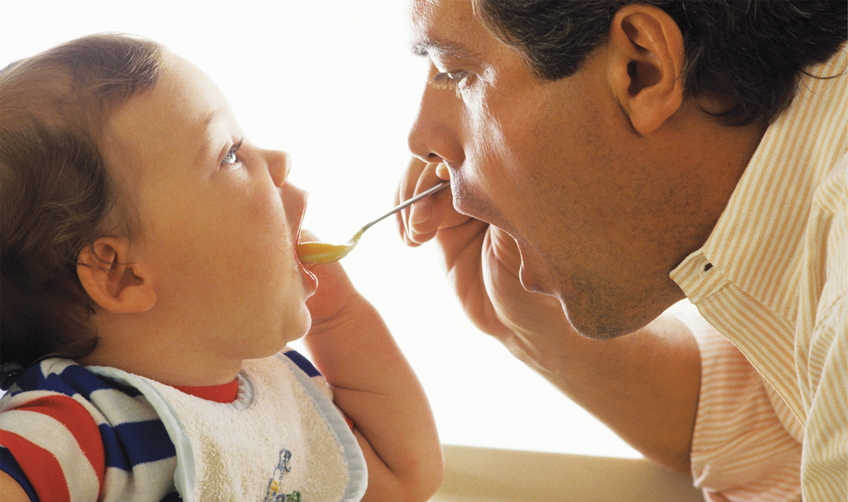Starting Solid Food
Learn about adding new foods to your baby’s diet.
Breastmilk or formula is the only food your baby needs until he is about 6 months old. Then you can start to give him pureed or mashed food. When your baby is hungry and you feed him promptly and lovingly, he feels secure. Over time, he will learn to feed himself and be proud of his new skills. And he will eat more foods and join in family meals.

You can try solid food when your baby:
When your baby is ready, start with small spoonfuls of cereal or pureed vegetables, fruit or meat. Try one new food at a time. Try it for a few days to see how your baby does with it. After 6 months, you can give your baby real juice. But give no more than ¼ cup a day and mix it with water. Avoid juice drinks. They have added sugar.
Your baby can begin to eat finely chopped meat, cheese, cooked vegetables and fruit. Do not add salt, sugar or spices. He still needs breastmilk or formula. But do not give him more than 3 bottles or cups (24 ounces) a day. If he drinks more, it can take away his appetite for solid food.
From breastfeeding: Try to breastfeed for at least a year. There are benefits to breastfeeding longer, for up to 2 years or more. When you wean your baby, go slowly. First, drop midday feedings. Then drop morning feedings. Last, drop evening feedings.
From the bottle: Start weaning at 12 to 18 months. To help her be ready, start to give her formula, water or juice from a sippy cup at 6 to 9 months.
THINGS YOU CAN DO
 Feeding Your Baby Safely
Feeding Your Baby SafelyDiaper rash is most common between 8 and 10 months, when your baby starts to eat more solid food.
Join our email list to keep up with the latest news and information from FTF